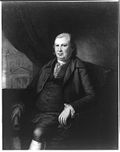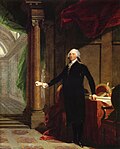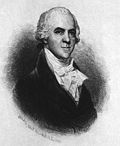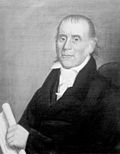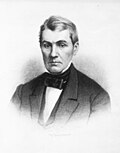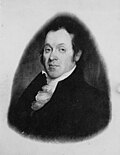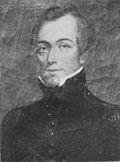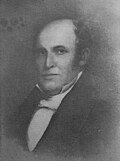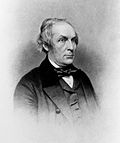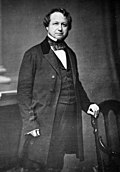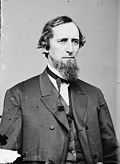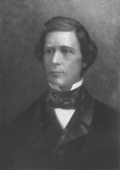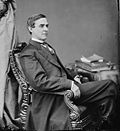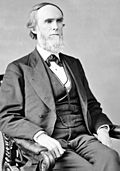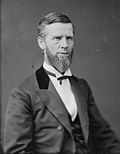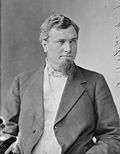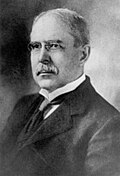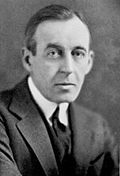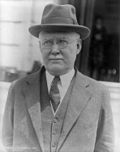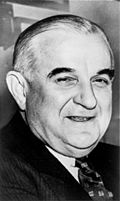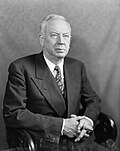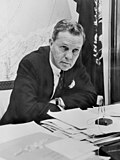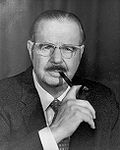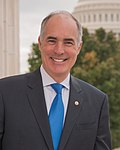Class 1
Class 1 U.S. senators belong to the electoral cycle that has recently been contested in 2006 , 2012 , 2018 , and 2024 . The next election will be in 2030 .C Class 3
Class 3 U.S. senators belong to the electoral cycle that has recently been contested in 2004 , 2010 , 2016 , and 2022 . The next election will be in 2028 .# Senator Party Dates in office Electoral history T T Electoral history Dates in office Party Senator # 1 William Maclay Anti- Mar 4, 1789 – Elected in 1788 .
Lost re-election. 1 1st 1 Elected in 1788 .
Retired. Mar 4, 1789 – Pro- Robert Morris 1 Vacant Mar 4, 1791 – Legislature failed to elect. 2 2nd 2 Albert Gallatin Anti- Dec 2, 1793 – Elected to finish the vacant term .
Election voided. 3rd Vacant Mar 1, 1794 – 3 James Ross Pro- Apr 24, 1794 – Elected to finish the vacant term that happened from 1791 to 1793 . Federalist 4th 2 Elected in 1795 .
Retired. Mar 4, 1795 – Federalist William Bingham 2 Re-elected in 1797 .
Retired. 3 5th 6th 7th 3 Elected in 1801 .
Resigned to become Supervisor of Revenue of Pennsylvania. Mar 4, 1801 – Democratic- Peter Muhlenberg 3 Jun 30, 1801 – Vacant Elected to finish Muhlenberg's term .
Retired. Dec 17, 1801 – Democratic- George Logan 4 4 Samuel Maclay Democratic- Mar 4, 1803 – Elected in 1802 .
Resigned. 4 8th 9th 10th 4 Elected in 1806 .
Retired. Mar 4, 1807 – Democratic- Andrew Gregg 5 Vacant Jan 4, 1809 – Vacant 5 Michael Leib Democratic- Jan 9, 1809 – Elected in 1809 to finish Maclay's term , having been elected to the next term. [ 1] Elected in 1808 . [ 2]
Resigned to become Postmaster of Philadelphia. 5 11th 12th 13th 5 Elected in 1812 . [ 3]
Retired. Mar 4, 1813 – Democratic- Abner Lacock 6 Vacant Feb 14, 1814 – 6 Jonathan Roberts Democratic- Feb 24, 1814 – Elected to finish Leib's term . Re-elected in late 1814 . 6 14th 15th 16th 6 Elected in 1818 .
Retired. Mar 4, 1819 – Democratic- Walter Lowrie 7 Vacant Mar 4, 1821 – Legislature failed to elect. 7 17th 7 William Findlay Democratic- Dec 10, 1821 – Elected late in 1821 .
Retired. 18th Jacksonian 19th 7 Elected in 1825 .
Lost re-election. Mar 4, 1825 – National William Marks 8 8 Isaac D. Barnard Jacksonian Mar 4, 1827 – Elected in 1826 .
Resigned to due ill health. 8 20th 21st 22nd 8 Elected in 1830 .
Resigned to become U.S. Minister to Russia . Mar 4, 1831 – Jacksonian William Wilkins 9 Vacant Dec 6, 1831 – 9 George M. Dallas Jacksonian Dec 13, 1831 – Elected to finish Barnard's term .
Retired. Vacant Mar 4, 1833 – Legislature failed to elect. 9 23rd 10 Samuel McKean Jacksonian Dec 7, 1833 – Elected late in 1833 . Jun 30, 1834 – Vacant Elected to finish Wilkins's term . Dec 6, 1834 – Jacksonian James Buchanan 10 24th Democratic 25th 9 Re-elected in 1836 . Democratic Vacant Mar 4, 1839 – Legislature failed to elect. 10 26th 11 Daniel Sturgeon Democratic Jan 14, 1840 – Elected late in 1840 . 27th 28th 10 Re-elected in 1843 .
Resigned to become U.S. Secretary of State . Re-elected in 1845 .
Retired. 11 29th Mar 5, 1845 – Vacant Elected in 1845 to finish Buchanan's term .
Retired. Mar 13, 1845 – Democratic Simon Cameron 11 30th 31st 11 Elected in 1849 . Mar 4, 1849 – Whig James Cooper 12 12 Richard Brodhead Democratic Mar 4, 1851 – Elected in 1851 . 12 32nd 33rd 34th 12 Legislature failed to elect . Mar 4, 1855 – Vacant Elected late in 1856 .
Retired. Jan 14, 1856 – Democratic William Bigler 13 13 Simon Cameron Republican Mar 4, 1857 – Elected in 1857 .
Resigned to become U.S. Secretary of War . 13 35th 36th Vacant Mar 4, 1861 – 37th 13 Elected in 1861 .
Lost re-election. Mar 4, 1861 – Republican Edgar Cowan 14 14 David Wilmot Republican Mar 14, 1861 – Elected in 1861 to finish Cameron's term .
Retired. 15 Charles R. Buckalew Democratic Mar 4, 1863 – Elected in 1863 . 14 38th 39th 40th 14 Elected in 1867 . Mar 4, 1867 – Republican Simon Cameron 15 16 John Scott Republican Mar 4, 1869 – Elected in 1869 .
Retired. 15 41st 42nd 43rd 15 Re-elected in 1873 .
Resigned. 17 William A. Wallace Democratic Mar 4, 1875 – Elected in 1875 .
Lost re-election. 16 44th 45th Mar 12, 1877 – Vacant Elected in 1877 to finish his father's term . Mar 20, 1877 – Republican J. Donald Cameron 16 46th 16 Re-elected in 1879 . 18 John I. Mitchell Republican Mar 4, 1881 – Elected in 1881 . 17 47th 48th 49th 17 Re-elected in 1885 . 19 Matthew Quay Republican Mar 4, 1887 – Elected in early 1887 . 18 50th 51st 52nd 18 Re-elected in 1891 .
Retired. Re-elected in 1893 .
Legislature failed to re-elect. 19 53rd 54th 55th 19 Elected in 1897 . Mar 4, 1897 – Republican Boies Penrose 17 Vacant Mar 4, 1899 – Quay was appointed to continue the term, but the Senate rejected his appointment. 20 56th Matthew Quay Republican Jan 16, 1901 – Elected late in 1901 .
Died. 57th 58th 20 Re-elected in 1903 . 20 Philander C. Knox Republican Jun 10, 1904 – Appointed to continue Quay's term.
Elected in 1905 to finish Quay's term . Re-elected in 1905 . [ 5]
Resigned to become U.S. Secretary of State . 21 59th 60th Vacant Mar 4, 1909 – 61st 21 Re-elected in 1909 . 21 George T. Oliver Republican Mar 17, 1909 – Elected to finish Knox's term Re-elected in 1911 .
Retired. 22 62nd 63rd 64th 22 Re-elected in 1914 . 22 Philander C. Knox Republican Mar 4, 1917 – Elected in 1916 .
Died. 23 65th 66th 67th 23 Re-elected in 1920 .
Died. Vacant Oct 12, 1921 – 23 William E. Crow Republican Oct 24, 1921 – Appointed to continue Knox's term.
Died. Dec 31, 1921 – Vacant Appointed to continue Penrose's term.
Elected to finish Penrose's term .
Lost renomination. Jan 9, 1922 – Republican George W. Pepper 18 Vacant Aug 2, 1922 – 24 David A. Reed Republican Aug 8, 1922 – Appointed to continue Knox's term.
Elected to finish Knox's term . Elected in 1922 . 24 68th 69th 70th 24 William Scott Vare (R) was elected in 1926 , but the Governor refused to certify the election and the Senate refused to qualify him. Mar 4, 1927 – Vacant Re-elected in 1928 .
Lost re-election. 25 71st Appointed to continue Vare's term.
Lost nomination to finish Vare's term. Dec 11, 1929 – Republican Joseph R. Grundy 19 Elected in 1930 to finish Vare's term Dec 2, 1930 – Republican James J. Davis 20 72nd 73rd 25 Re-elected in 1932 . 25 Joe Guffey Democratic Jan 3, 1935 – Elected in 1934 . 26 74th 75th 76th 26 Re-elected in 1938 .
Lost re-election. Re-elected in 1940 .
Lost re-election. 27 77th 78th 79th 27 Elected in 1944 .
Lost re-election. Jan 3, 1945 – Democratic Francis Myers 21 26 Edward Martin Republican Jan 3, 1947 – Elected in 1946 . 28 80th 81st 82nd 28 Elected in 1950 .
Lost re-election. Jan 3, 1951 – Republican James H. Duff 22 Re-elected in 1952 .
Retired. 29 83rd 84th 85th 29 Elected in 1956 . Jan 3, 1957 – Democratic Joseph S. Clark Jr. 23 27 Hugh Scott Republican Jan 3, 1959 – Elected in 1958 . 30 86th 87th 88th 30 Re-elected in 1962 .
Lost re-election. Re-elected in 1964 . 31 89th 90th 91st 31 Elected in 1968 . Jan 3, 1969 – Republican Richard Schweiker 24 Re-elected in 1970 .
Retired. 32 92nd 93rd 94th 32 Re-elected in 1974 .
Retired. 28 John Heinz Republican Jan 3, 1977 – Elected in 1976 . 33 95th 96th 97th 33 Elected in 1980 . Jan 3, 1981 – Republican Arlen Specter 25 Re-elected in 1982 . 34 98th 99th 100th 34 Re-elected in 1986 . Re-elected in 1988 .
Died . 35 101st 102nd Vacant Apr 4, 1991 – 29 Harris Wofford Democratic May 9, 1991 – Appointed to continue Heinz's term.
Elected to finish Heinz's term .
Lost re-election. 103rd 35 Re-elected in 1992 . 30 Rick Santorum Republican Jan 3, 1995 – Elected in 1994 . 36 104th 105th 106th 36 Re-elected in 1998 . Re-elected in 2000 .
Lost re-election. 37 107th 108th 109th 37 Re-elected in 2004 .
Changed party on Apr 28, 2009.
Lost renomination . 31 Bob Casey Jr. Democratic Jan 3, 2007 – Elected in 2006 . 38 110th 111th Democratic 112th 38 Elected in 2010 . Jan 3, 2011 – Republican Pat Toomey 26 Re-elected in 2012 . 39 113th 114th 115th 39 Re-elected in 2016 .
Retired. Re-elected in 2018 .
Lost re-election. [ 6] 40 116th 117th 118th 40 Elected in 2022 . Jan 3, 2023 – Democratic John Fetterman 27 32 Dave McCormick Republican Jan 3, 2025 – Elected in 2024 . [ 6] 41 119th 120th 121st 41 To be determined in the 2028 election . To be determined in the 2030 election. 42 122nd # Senator Party Years in office Electoral history T C T Electoral history Years in office Party Senator # Class 1 Class 3 


